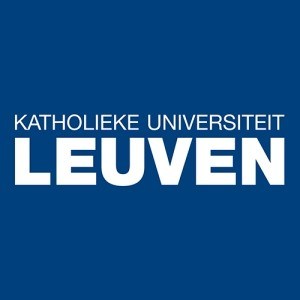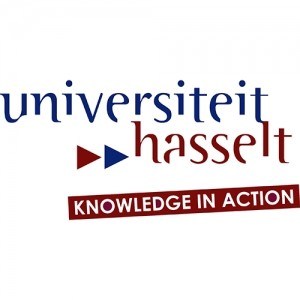Photos of university / #kuleuven
The Master's degree in Biomedical Engineering at KU Leuven offers a comprehensive and interdisciplinary education designed to prepare students for innovative careers at the intersection of engineering, biology, and medicine. This program provides a solid foundation in core engineering principles, complemented by in-depth training in biological and medical sciences, enabling graduates to develop advanced solutions for healthcare challenges. Students will explore areas such as medical imaging, biomaterials, biomechanics, tissue engineering, and biomedical signal processing, gaining both theoretical knowledge and practical skills through laboratory work, projects, and internships. The curriculum emphasizes research and innovation, encouraging students to participate in cutting-edge projects addressing real-world medical issues, with collaboration opportunities involving industry partners, hospitals, and research institutions. The program aims to foster a multidisciplinary mindset, critical thinking, and problem-solving abilities, preparing graduates for careers in medical device development, healthcare technology, research, and academia. By integrating engineering expertise with a deep understanding of biological systems, the Master's in Biomedical Engineering at KU Leuven empowers students to contribute to the advancement of personalized medicine, regenerative therapies, and medical diagnostics. Graduates will be equipped to navigate the rapidly evolving landscape of biomedical technology and to make meaningful contributions to improving patient care and health outcomes worldwide. The program emphasizes an international environment, attracting students from diverse backgrounds and offering opportunities for mobility and collaboration within the European research area, ensuring a broad and global perspective on biomedical innovation.
Truncus Communis
Basic Medical Courses
- Basic Medical Courses
- Human Cell Biology
- Human System Physiology
Biomedical Engineering Courses
- Biomedical Measurements and Stimulation
- Biomedical Data Processing
- Biomaterials I
- Musculoskeletal Biomechanics
- Medical Imaging and Analysis
- Biofluid Mechanics
- Medical Equipment and Regulatory Affairs
Project Based Learning
- Design in Medical Technology
- Master's Thesis
Elective Courses
- Capita selecta ingenieurswetenschappen I.1. (Athens / Summer Course)
- Capita selecta ingenieurswetenschappen I.2. (Athens / Summer Course)
- Genetic Algorithms and Evolutionary Computing
- Uncertainty in Artificial Intelligence
- Structural Dynamics, Analysis and Numerical Modelling
- Analog Building Blocks for Signal Processing
- Microsystems and Sensors
- Bayesian Modelling for Biological Data Analysis
- Biomedical Data Processing, Part II
- Medical Image Analysis and Processing: Part II
- Advanced Study Topics in Musculoskeletal Biomechanics
- Design of Electronic Circuits
- Design of Digital Platforms
- Industrial Internship: Biomedical Engineering
- Host Response to Implanted Materials
- Data Mining
- ext based Information Retrieval
- Support Vector Machines: Methods and Applications
- Robotics
- Computer Vision
- Mechanobiology
- Computer Aided Engineering in Surgery
- Artificial Organs and Tissue Engineering
- Design of Analog Integrated Circuits
- Micro-electromechanical Systems
- Brain Computer Interfaces
- Design of Digital Integrated Circuits
- Bio-informatics
- Next Generation Biomaterials
- Capita selecta ingenieurswetenschappen II.1. (Athens / Summer Course)
- Capita selecta ingenieurswetenschappen II.2. (Athens / Summer Course)
General Interest Courses
- Engels in de bedrijfsomgeving
- Frans in de bedrijfsomgeving
- Interdisciplinary Perspectives on Development and Cultures
- Foundations of Bioethics and Principles of Clinical Ethics
- Dutch Language and Cultures
- Studium generale: mens- en wereldbeelden
- Innovation Management and Strategy
- Engineering Economy
- Management and Information Technology
- Management and Policy Aspects of Technology in Healthcare
- Bedrijfservaring: Biomedische Technologie / Industrial Experience: Biomedical Engineering
- Total Quality Management
- Intellectual Property Management
- Introduction to Management and Strategy
- Engineering & Entrepreneurship
- Entrepreneurship in de praktijk / in practice
- Entrepreneurship in de praktijk / in practice
- Technology Entrepreneurship and New Business Development
- Project Management
Requirements
- All applicants (EEA and non-EEA) will have to pay an application fee of 50 € to process their file.
- PDF scans of your diplomas and transcripts of academic records
- PDF scan of the translation of your diploma and official transcripts
- The PDF scans of the TOEFL or IELTS certificates have to be uploaded in the web application Applicant. The original TOEFL or IELTS certificates have to be sent directly by ETS or by the official IELTS test centre administered by The British Council or IDP Education to International Admissions and Mobility at KU Leuven. Alternatively, you can also request ETS or the British Council to make your test result available to KU Leuven online, so we can verify your result via the online verification tool.
- If you still have to take the test by the time you want to submit your application file, upload a proof of registration for the TOEFL or IELTS test in the meantime. The proof of registration should mention the date when you will be taking the test.
- PDF of the proof of payment of the application fee made either via bank transfer or via credit card
- PDF scan of the identity page of your passport
- PDF of your motivation letter (recommended size: one A4 page)
- PDF of your CV
Tuition fees for the Biomedical Engineering master’s program at KU Leuven vary depending on the student’s nationality and residency status. For European Union (EU) students, the annual tuition fee is approximately €922, which covers the cost of instruction, course materials, and access to university facilities. Non-EU students are required to pay higher tuition fees, typically around €3,750 per year, reflecting the university’s policy to sustain high-quality education and research competitiveness. These fees are subject to change annually and students are advised to consult the official KU Leuven website for the most current information.
In addition to tuition fees, students should consider living expenses, which include accommodation, food, transportation, study materials, insurance, and personal costs. Leuven is known for its relatively affordable cost of living compared to other Belgian cities, with estimated monthly expenses ranging from €800 to €1,200 depending on the student’s lifestyle and accommodation choice. Many students opt for university dormitories, private rentals, or shared apartments, which can help manage costs effectively.
KU Leuven offers various financial support options for both domestic and international students enrolled in the Biomedical Engineering program. These include scholarships, grants, and fellowships based on academic merit, financial need, or specific student categories. The university’s scholarships for international students are often selective and highly competitive, emphasizing academic excellence and motivation to pursue biomedical research.
Students are also encouraged to seek external funding sources, such as government grants, Erasmus+ mobility programs, and private foundations that support international education and engineering research. Additionally, part-time work opportunities are available on or near campus, allowing students to supplement their income while gaining practical experience.
The university provides detailed guidance on the application procedures for financial aid and scholarships. Prospective students should prepare necessary documents such as academic transcripts, proof of financial need, motivation letters, and language proficiency certificates. It is recommended to apply early to increase the chances of obtaining available funding.
Overall, financing a Biomedical Engineering degree at KU Leuven involves planning for tuition fees, living expenses, and potential financial aid. The university’s commitment to accessible education and extensive support services aim to assist students in managing the costs associated with their postgraduate studies.
The Master's degree program in Biomedical Engineering at KU Leuven is designed to provide students with a comprehensive understanding of the integration of engineering principles with biological and medical sciences. This program aims to prepare graduates for a wide range of careers in medical technology, research, healthcare innovation, and biomedical product development. The curriculum combines advanced engineering courses with specialized modules in biomedical sciences, enabling students to develop expertise in areas such as medical imaging, biomaterials, biomechanics, and medical devices.
Students enrolled in this program benefit from state-of-the-art laboratories and facilities, allowing for hands-on experience in designing, developing, and testing biomedical equipment. The program emphasizes research and innovation, encouraging students to engage in cutting-edge projects supervised by leading faculty members. Moreover, interdisciplinary collaboration is a core component, with students working alongside experts in medicine, biology, and engineering to solve complex health-related problems.
The program is structured to include coursework, practical training, and a master's thesis project. The coursework covers fundamental topics such as human physiology, electronic systems for biomedical applications, data analysis, and signal processing. Practical training often involves internships or collaborative projects with hospitals, research institutes, or biomedical companies, providing real-world experience. The master's thesis is an independent research project that allows students to contribute to ongoing research initiatives or develop innovative biomedical solutions.
Graduates of the Biomedical Engineering Master's program at KU Leuven are equipped with the technical, analytical, and research skills needed to pursue careers in industry, academia, or healthcare. Many find employment in medical device manufacturing, healthcare IT, research laboratories, or continue further studies at the doctoral level. The program aligns with KU Leuven's mission to foster innovation and excellence in education, ensuring that graduates are well-prepared for the evolving demands of the biomedical field.
The program is part of KU Leuven's Faculty of Engineering Science, which emphasizes research-driven education and innovation. It benefits from KU Leuven's extensive network of partnerships with hospitals, research centers, and industry leaders, offering students unique opportunities for internships, collaborative projects, and career placement. Overall, the Biomedical Engineering Master’s program at KU Leuven offers a rigorous, interdisciplinary, and forward-looking education designed to equip students with the skills and knowledge necessary to make a significant impact in biomedical science and engineering.



